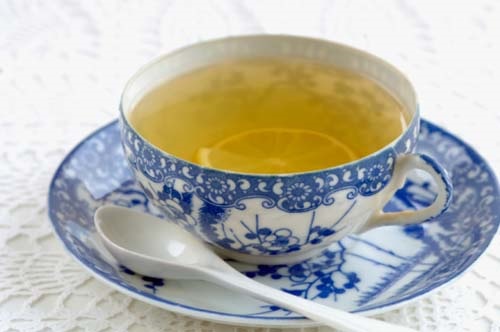Jan 18, 2026
Jan 18, 2026
An ancient Chinese proverb goes thus – “Better to be deprived of food for three days than tea for one”. Of the three major beverages of the world – tea, coffee and cocoa – tea is the most popular. Tea has a long and ancient history and has been associated with man since time immemorial.

History
China is known as the homeland of tea. India and China are probably the first countries to cultivate tea. It is believed that tea shrubs existed in China as early as 5000-6000 years ago. Once when Emperor Shen Nung was sitting under a camellia tree, a few leaves accidentally fell into a cauldron of boiling water. The resulting fragrance tempted the Emperor to sip the brew. This is believed to be the beginning of Chinese tea culture.
Basically there are three types of tea – black, oolong and green tea. Green tea today has become very popular worldwide. Made from the dried leaves of the camellia sinensis plant, green tea came from China between 4000-5000 years ago. In oriental countries green tea has been used for many centuries for its therapeutic and medicinal qualities. People in China and Japan have known the positive aspects green tea brings to our health for centuries and Asians on an average drink 1-2 cups per day as a cleanser for the body. The global consumption of tea is about 3 billion kilos annually with India alone accounting for the largest contribution (about 30%).
The Chinese have known about the medicinal benefits of green tea since ancient times, using it to treat everything from headaches to depression. It has been used as a medicine in China for at least 4000 years. The difference between green tea and other teas is that green tea is not fermented, thus keeping the powerful antioxidants lost in the fermenting process. Green tea is not oxidized at all, the leaves are steamed, rolled and dried. Green tea has a more delicate taste than black tea. Green tea is the variety that keeps the original color of the tea leaves without fermentation.

Health benefits
The use of green tea as a beverage dates back to 3000 BC. Green tea is believed to have several wide ranging health benefits now supported by recent research. There are four primary polyphenols in green tea and they are often collectively referred to as catechins. Powerful antioxidants, catechins have been shown in recent studies to fight viruses, slow aging and have a beneficial effect on health. The principal catechin is EGCG whose composition in green tea is believed to be 100 times more potent than vitamin C and 25 times better than vitamin E as an antioxidant.
The production of free radicals is the body in the main cause of many ‘lifestyle’ diseases like diabetes, cataract, atherosclerosis, Alzheimer’s disease and skin cancer. The antioxidants in green tea fight these free radicals and therefore these diseases.
Studies on animals and humans in various places, as well as ongoing research suggest the following health benefits of consuming green tea.
Cardiovascular diseases
The antioxidants in green tea decrease the risk of blood clots, blood pressure, blood sugar and bad cholesterol and so provide protection against cardiovascular diseases. A series of animal and human studies have highlighted the heart-friendly activity of green tea. The EGCG in green tea is believed to slow the build-up of artery-clogging plaque. Green tea is also believed to improve the LDL-HDL cholesterol ratio, triglycerides and fibrinogen – all blood indicators of heart disease. Green tea helps to reduce cholesterol levels.
Compounds other than EGCG in green tea have been found to be heart protective as well. An amino acid called theanine, which helps reduce blood pressure is present in green tea.
Good for teeth
Green tea contains fluoride which is good for teeth. It can kill the bacteria that causes dental plaque. It checks dental decay by inhibiting the growth of oral bacteria and so fights cavities. When used as a mouth rinse, this herbal drink reduces plaque formation. It also counters bad breath.
Cancer fighting properties
A new study published in the Clinical Cancer Research reveals how green tea works to curb the development of bladder cancer. Green tea extract inhibits the growth and proliferation of cancerous cells, the study claims. Researchers at the University of California Los Angeles (UCLA) have found that green tea was able to target cancer cells while leaving healthy cells alone. The cell movement depends on a bio-chemical process called actin remodeling. When it is activated the cancer cells move and invade other healthy cells. Green tea extract affects actin remodeling.
Population studies suggest that green tea consumption may be one of the reasons why the incidence of cancer is so low in Japan. Studies have shown that people who drank more green tea were less likely to develop tumors. Emerging animal and clinical studies suggest that EGCG could play an important role in the prevention of many types of cancer including breast, skin, lung, stomach, prostrate, ovarian and colon cancer.
Stress buster
Catechin, present in green tea removes sleepiness and works as a stress buster. If you are in need of an extra boost, then green tea with the caffeine content is a good stimulant for short time energy. The drink has got a diuretic effect and prevents rashes, indigestion and disease called beriberi. Green tea chemicals destroy harmful microbes only.
Helps in losing weight
New evidence is emerging that green tea can even help dieters. It contains no calories – so is useful to those who want to lose weight. Researchers have found that men who were given a combination of caffeine and green tea extract burned more calories than those given only caffeine or a placebo. Green tea is less processed than black tea and contains rich sources of antioxidants which protect the body’s cells from damage. The steaming process maintains more of its pharmacological properties. It burns calories and speeds up body mechanism.
Scientists believe that EGCG could probably bring about weight loss by three mechanisms; increasing metabolic rate, preventing the digestion of carbohydrates and reducing appetite. No wonder the Japanese have been drinking green tea before, during and after a high carbohydrate meal for centuries.
Anti aging properties
Current research has revealed that green tea extracts can be used in anti-aging medicines. Green tea is healthy and helps in the body’s healing. Green tea may delay aging by its strong antioxidant action, preventing the accumulation of free radicals and the resultant damage to the DNA over time.
Other health benefits
Green tea helps to reduce the severity of rheumatoid arthritis, cataract, diabetes and impaired immune infection. It fights viruses and can help protect your joints and stave off arthritis in two ways – by reducing inflammation and by protecting against cartilage breakdown. It can even help improve joint mobility. It is believed to help boost immunity with its stimulating effect on the immune system. It acts as a herbalist for aiding in the circulation of the blood, a detoxifier for the blood and an aid in curing liver ailments. Green tea is also good for women experiencing menopause, being a good source of vitamins and minerals. Green tea helps to prevent or delay the formation of cataract and macular degeneration.
As a beauty aid
Many skin preparations contain green tea extracts – from deodorants to creams. Recent research suggests that green tea may protect your skin from against the damage caused by ultraviolet rays. Green tea is also being widely used to dispel the heat and bring on an instant cool together with a feeling of relaxation. It is also very useful to quench the thirst.
How to prepare green tea
Take one teaspoon of green tea leaves to one cup of just below boiling temperature water, let stand for 10 minutes and then strain. You may add lemon or honey for taste. Green tea is to be sipped slowly, not gulped down. Today green tea is commercially available all over the world and is a favored gift in an attractive basket or packet.
The only negative side effect of green tea is that it may induce insomnia. Hence it is advisable to take the evening cup at least 3-4 hours before bedtime. Ideally one should have 10 cups of green tea a day in order to get all its benefits. Green tea capsules are also available in the market but they are pretty expensive.
Already green tea extracts have found a place in cholesterol lowering drugs, dietary supplements and among popular beverage brands across the world. EGCG is being promoted for good health in popular staple food items like biscuits and cookies.
In conclusion
Few herbs go back in time as much as tea does. Tea has been one of the daily necessities in China since time immemorial and the art of growing, processing, brewing and drinking tea evolved in China. Today a wide variety of brews adorn the supermarket shelves. But a wealth of research suggests that green tea can be a welcome addition to your stock of brews. Today scientific research in both Asia and the West is providing hard evidence for the health benefits long associated with drinking green tea. So go ahead and enjoy this magical drink which has myriad therapeutic and medicinal properties.
Images under license with Gettyimages.com
04-May-2008
More by : Dr. Anjana Maitra